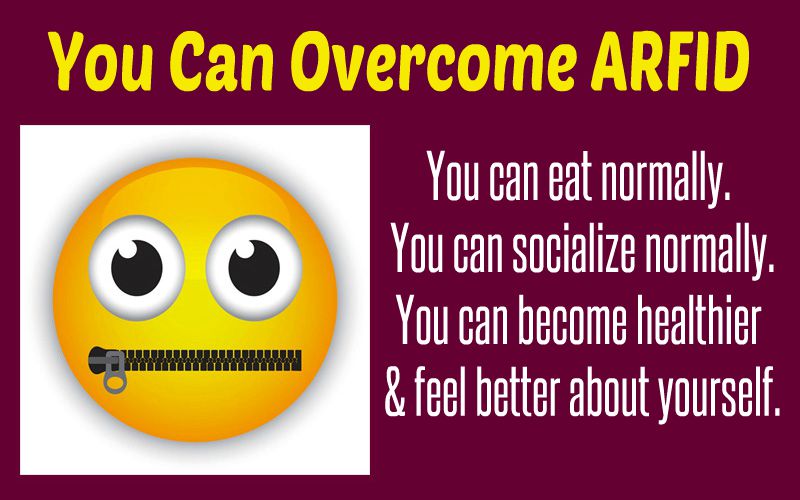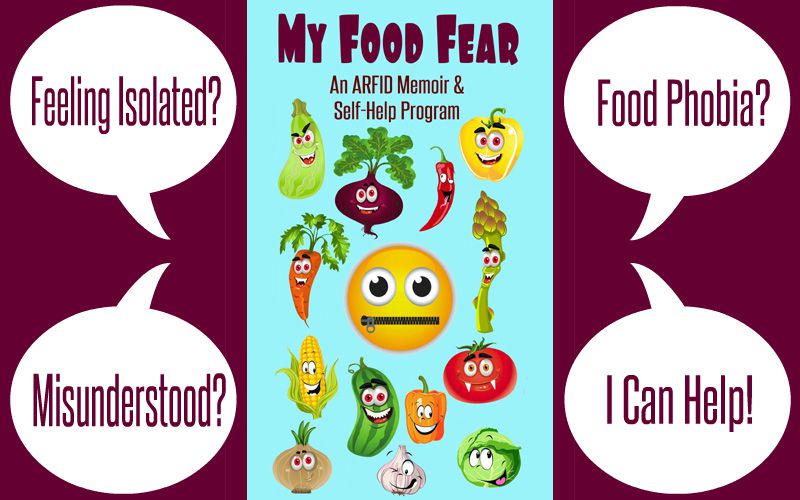What are the origins of your fear of food? Why do you suffer from terrible food and eating phobia? Have you ever considered the answers to these questions? Do your own fears make any sense to you?
In my extensive experience with food phobias, virtually all extreme cases of avoidant restrictive food intake disorder are idiopathic. This means that they have no known origin and can not be traced back to a specific thought, incident or experience in the past. So then, why are food fears so incredibly powerful? The answer to this question resides in the psychoemotional makeup of the human organism.
This fascinating post will explore the fear of food from a completely different perspective. As a person who has worked in the chronic pain sector for much of my life, I am well versed in mindbody medicine. This is the study of the interactions between mind and body. When it comes to food fears, this is the most important field of study, since selective eating disorder almost always originates in the emotional mind, but is expressed in the body through the behavioral imperatives of the individual.

Origins of the Fear of Food
I occasionally come across a person suffering from ARFID who knows specifically where there food fears originate. They might have endured some traumatic experience early in life (or even later in life) that might have directly caused their present fear response and selective eating habits. The nature of this trauma can range greatly, from food-related experiences like choking, gagging or suffering food poisoning to seemingly non-food-related traumas involving family, relationships or other life circumstances.
However, the vast majority of people who suffer from ARFID do not know why they fear food. They have these thoughts about food that are very negative and these thoughts stem from incredibly powerful emotions regarding food and eating. Often, the conscious recognition of the intensity of these emotions is present, but why they exist is a mystery to the outside world, as well as to the very person with the eating disorder.
These people tend to find many foods extremely disgusting and even disturbing on a conceptual level. They are not happy simply not eating these foods. They often do not want to be around them, to smell them, see them or see others eating them. Most of these people would be happy if all their undesirable foods would simply disappear off the planet! They can feel how intense their feelings are, but can not understand WHY they have these feelings in the first place.
Slightly less common, but still frequently seen, are people with extreme ARFID who do not consciously feel the intensity of their food fears and dislikes. They often play-down their food phobia, saying that eating is simply not important to them. However, when pressed to eat out of their comfort zone, many will over-react, showing the true subconscious intensity of the origin of their current peculiar eating habits. These people are obviously more repressed and suppressed psychoemotionally and the reasons for this are often directly linked to the eating disorder, as well. In essence, the eating disorder is just one of possibly many expressions of some underlying psychoemotional sensitivity that governs much of the person’s life and behavior. We see this exact same profile among chronic pain sufferers, as well.
Behavioral Imperatives
When a person has underlying emotional sensitivities that express themselves in relation to food and eating, the consequences can be great and wide-ranging:
Many people will develop extremely selective eating habits. These people typically qualify to be diagnosed with ARFID from a clinical POV. They will eat only a small selection of foods, often arbitrarily. They will refuse to eat most foods and often entire categories of foods. Most of these people will refuse to eat in many situations and prefer to prepare their own foods the same way every day.
Some people with ARFID will not receive adequate balanced nutrition and a few may even qualify to be called malnourished. A diversity of health effects might result including low body weight, the inability to gain weight and potentially dire anatomical and systemic deficits.
Many people with selective eating disorder suffer psychological problems, such as feelings of isolation, loss of self-esteem and a poor body image. These effects can have their own consequences on overall health and wellness, as well as greatly diminishing satisfaction with life.
All people affected by ARFID will suffer significant social restrictions, anxieties and stresses related to dining out or social gatherings where food plays a major role (virtually all).
There can be many possible consequences of avoidant restrictive food intake disorder on a case by case basis.

Do You Need Help Overcoming the Fear of Food?
I make it a priority to welcome everyone here to this website. I know from my own personal experience suffering from ARFID for almost 4 decades that most people DO NOT want help. They accept themselves and their strange eating habits, even if they do not like either, and are resolved to live out the rest of their lives without changing anything. That is fine. It is a matter of personal choice and I certainly understand that changing seems quite impossible!
However, I do want to make it crystal clear to people who DO want to change that help is available. There are several effective forms of ARFID treatment, including professional and self-managed programs. There are support groups, although some are quite unproductive towards actually changing habits…
I know that you can change is you WANT to change, because I did! I did not even want to change, per se… I managed to cure my ARFID in my late 30s after eating virtually nothing since the age of 2 (and possibly even before, since I can’t remember before this time.) I am now a normal eater, despite still being a vegetarian. This is a change that has served me well in my present lifestyle, since I travel for a living and now the world of food is a pleasure to me, instead of a disgusting source of anxiety and fear. It is never too late if you want to change. If I can help you, I am happy to try.
